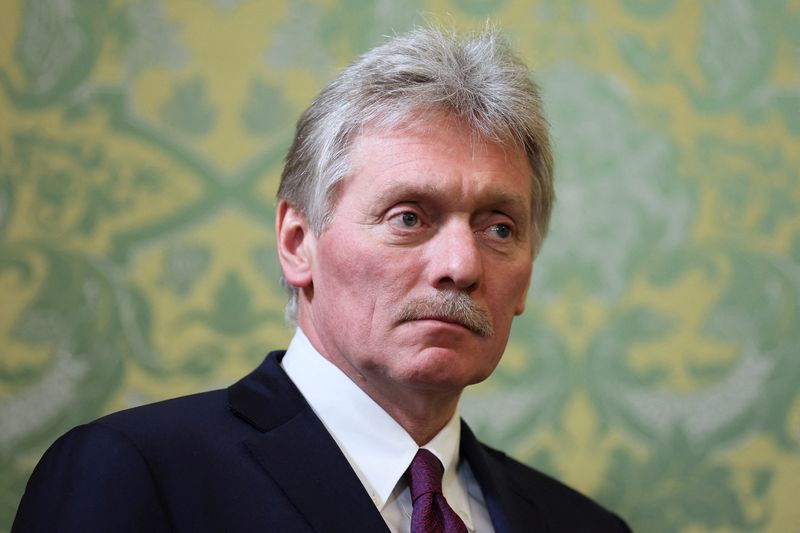
©Reuters. FILE PHOTO: Kremlin spokesman Dmitry Peskov attends a meeting between Russian President Vladimir Putin and Iranian President Ebrahim Raisi in Moscow, Russia, December 7, 2023. Sputnik/Sergei Bobylev/Pool via REUTERS/file Photo
By Guy Faulconbridge
MOSCOW (Reuters) – Russia on Thursday rejected a United States warning about new Russian nuclear capabilities in space, calling it a “malicious fabrication” and a White House trick aimed at persuading U.S. lawmakers to approve more funds to counter Moscow.
The United States has reported to Congress and allies in Europe new intelligence information related to Russian nuclear capabilities that could pose an international threat, a source familiar with the matter told Reuters on Wednesday.
The new capabilities, linked to Russian attempts to develop a space weapon, do not pose an urgent threat to the United States, the source said.
Kremlin spokesman Dmitry Peskov said he would not comment on the substance of the reports until the details are revealed by the White House. But he said Washington’s warning was clearly an attempt to get Congress to approve more money.
“It is obvious that the White House is trying, by hook or by crook, to encourage Congress to vote on a bill to allocate funds, that is obvious,” the Kremlin spokesman told state news agency TASS Dmitry Peskov.
“We’ll see what tricks the White House will use,” Peskov said.
Deputy Foreign Minister Sergei Ryabkov, Moscow’s point man on arms control, accused the United States of “malicious manufacturing”, TASS reported.
Russia’s invasion of Ukraine – what Moscow calls a special military operation – has triggered the biggest confrontation between the West and Russia since the 1962 Cuban missile crisis. Both Moscow and Washington have warned of the risk of conflict between NATO and Russia .
Russia and the United States are among the major nuclear powers: together their arsenals hold about 90% of the world’s nuclear weapons, and both have advanced military satellites orbiting the earth.
SPACE CORE?
The United States views Russia and China as its biggest competitors domestically, and Washington says both Moscow and Beijing are developing a range of new weapons systems, including nuclear, cyber and space capabilities.
Russia argues that US post-Cold War dominance is crumbling and that Washington has for years sowed chaos across the planet, ignoring the interests of other powers. Moscow says the United States is also developing a number of new weapons.
In the early years of the Cold War, after Russia made a leap forward in the space race and both sides developed intercontinental ballistic missiles, the West proposed a treaty to ban nuclear weapons in space.
The end result was the 1967 Outer Space Treaty banning any weapons of mass destruction from being put into orbit or into space.
In recent years, disagreements between Moscow and Washington have eroded the framework of arms control treaties that sought to reduce the risk of nuclear war between them.
The New York Times and ABC News previously reported that new American intelligence was linked to Russian attempts to develop a space-based anti-satellite nuclear weapon.
It was not immediately clear why Russia would need a nuclear weapon to destroy a satellite.